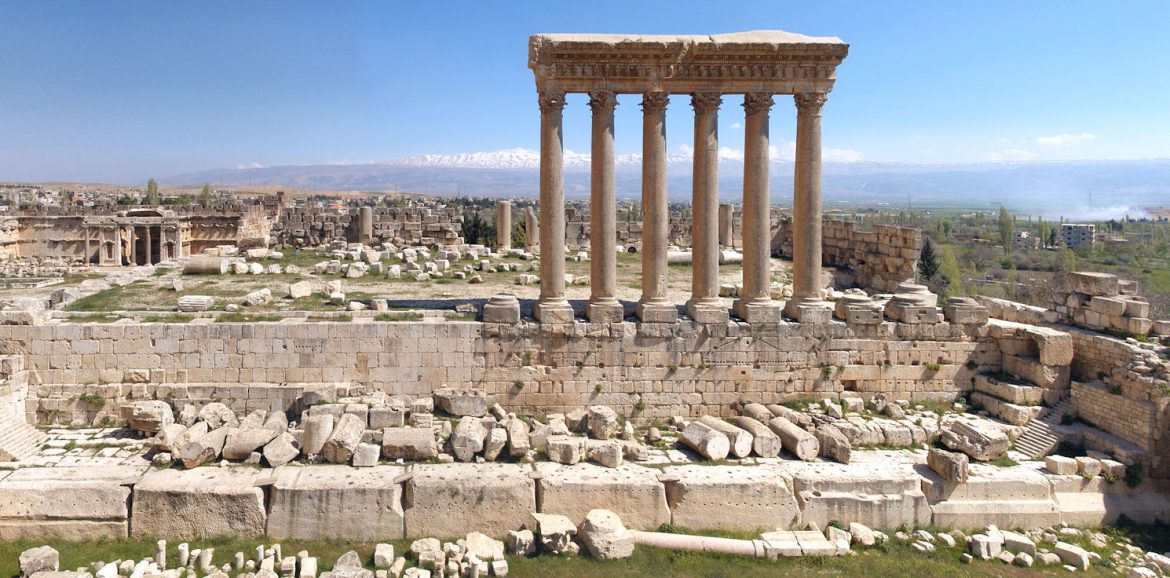Located in Lebanon’s Beqaa Valley about 85 km northeast of Beirut, Baalbek is an ancient Phoenician city inhabited as early as 9000 BC. The area was a pilgrimage site where temples were constructed for the worship of the Phoenician gods Baal and Astarte. Until today, historians are baffled by the immense weight and mass of the stones used – the process of how the stones were moved, assembled and carved remains a mystery. The Roman colonization followed where the site was vastly improved with huge building projects and roads. The temples were then brought into the Christian era, followed by Islamic rule and then Ottoman rule.
The temples were largely abandoned by the Ottomans and a series of earthquakes and natural disasters left the temples in ruins. In 1898, the Germans restored and preserved Baalbek for future generations. Today, it is home to one of the largest Roman temple ruins in the world – specifically the temples of Jupiter, Bacchus and Venus – and is a prized historical treasure in Lebanon admired by tourists. The area hosts the annual Baalback International Festival where classical music, dance, theatre, opera and jazz combine to create a modern-day popular cultural event.





